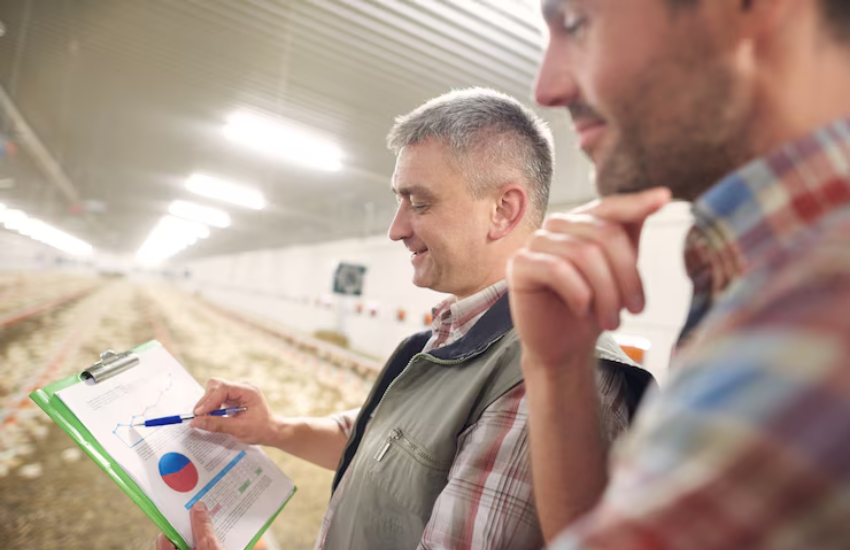What Farmers Should Know About Bulk Agricultural Oil Orders
Running a farm isn’t just about planting and harvesting anymore. It’s a finely tuned operation where logistics, timing, and smart resource management can make or break a season. One of the often-overlooked ways to gain efficiency on the farm is through how you manage your fuel—specifically, how you buy and store agricultural oil.
For farmers who rely heavily on machinery, placing bulk agricultural oil orders isn’t just a matter of convenience—it’s a strategy. But like any strategy, success comes down to preparation, timing, and choosing the right partners. Whether you’re new to bulk fuel buying or just looking to improve your approach, here’s what you really need to know.
Why Bulk Fuel Makes Sense for Modern Farms
Farmers don’t have the luxury of running to the petrol station every time they need to fill up. Tractors, sprayers, generators, and combines run on diesel, and during peak seasons, demand can be relentless. Bulk fuel purchasing allows you to:
- Save money by locking in prices and avoiding retail markups
- Prevent downtime by keeping fuel on-site and ready
- Reduce stress by avoiding last-minute orders when everyone else is rushing to fill up
Unlike traditional buying patterns, bulk orders are part of a bigger picture: they bring predictability to a business that deals with more than its fair share of unpredictability.
Not All Fuel Is Equal – Understand What You’re Buying
Before placing a large order, get familiar with the fuel itself. Agricultural oil typically refers to red diesel—a dyed form of gas oil used in off-road vehicles. But not all red diesel is created equal.
Ask your supplier:
- Is this fuel treated with additives to reduce engine wear?
- Does it meet current British Standards (BS EN 590 for diesel)?
- Can it withstand seasonal temperature changes without gelling or separating?
Also, consider alternatives like HVO (Hydrotreated Vegetable Oil) if you’re looking to reduce your carbon emissions or futureproof your operations against regulatory changes.
The True Cost Isn’t Just Price per Litre
Many farmers fall into the trap of chasing the lowest price per litre. But with fuel, you often get what you pay for. Cheap fuel can mean low-quality blends that clog filters, cause injector issues, or damage your machinery long-term.
Instead of focusing solely on cost, consider:
- Delivery reliability
- Customer service
- Emergency supply options
- Flexible payment terms
A good supplier won’t just deliver fuel—they’ll support your operation year-round.
How Much Should You Order? Know Your Demand
Ordering too little can interrupt your workflow; ordering too much can lead to storage issues or stale fuel. Use past data to estimate how much fuel you’ll need for your busy periods, particularly planting and harvest.
Ask yourself:
- How many hours do you run machinery weekly?
- What’s your average fuel burn rate per machine?
- Do you have secondary needs like generators or heating systems?
Smart forecasting means fewer surprises and more consistent budgeting.
Storage: More Than Just a Big Tank
Having a large fuel tank is only half the battle. Safe and compliant storage is essential, not only for efficiency but also for meeting UK environmental regulations.
Here’s what you need to check:
- Is your tank bunded (i.e. double-skinned to prevent leaks)?
- Do you have spill containment measures in place?
- Is the tank located away from watercourses, drains, and public access?
Routine inspections, clean-outs, and proper documentation help ensure you’re not caught off guard by a leak—or worse, a regulatory fine.
Plan for Fuel Theft and Contamination
Fuel theft is a rising concern across the UK, especially in remote rural areas. A full tank can be a tempting target for thieves.
Protect your bulk supply with:
- Tank locks and motion-triggered lighting
- Security cameras or trail cams
- GPS-enabled fuel level monitors
- Keeping tanks out of sight or enclosed within locked sheds
Equally important is protecting fuel quality. Water condensation, dirt ingress, or microbial growth can turn your valuable oil into a mechanical liability. Routine fuel testing, filtration systems, and regular tank maintenance are small investments that prevent major headaches.
Bulk Orders Work Best With a Trusted Supplier
Choosing the right fuel supplier is about more than price or proximity. You want a partner who understands the seasonal pressure of farm life, offers flexible delivery schedules, and doesn’t disappear when the tank runs dry.
Ask around—often, the best supplier isn’t the biggest, but the one that knows your name, understands your operation, and answers the phone when it counts.
Consider signing a fuel agreement or setting up a usage-based auto-refill system to take the guesswork out of future deliveries.
A Final Word: Fuel Is an Investment, Not Just an Expense
In farming, every decision affects the bottom line. Fuel might seem like a background cost, but how you buy it, store it, and manage it can have a significant ripple effect on productivity and profit. Bulk agricultural oil orders offer predictability, cost-efficiency, and peace of mind—but only when approached with care and foresight.
Like every good harvest, a successful bulk fuel strategy starts with planning, grows through smart management, and pays off when the pressure is on.

